Actor Miranda Tapsell opens up about why Aboriginal voices matter
In a candid interview, multi-talented actor Miranda Tapsell discusses life in lockdown with her husband and why, as a proud Aboriginal woman, her voice matters.
Stellar
Don't miss out on the headlines from Stellar. Followed categories will be added to My News.
You’ve spent most of the year in lockdown in Melbourne with your husband of almost two years, comedian and writer James Colley.
Was it smooth sailing or did you get on each other’s nerves?
[Laughs]. I feel really lucky to have had such a patient and understanding partner like James. We were really kind and thoughtful to each other during this time because it was hard enough without us being hard on each other.
I feel a lot better knowing that my friends in Victoria can now be out of the house. James and I both are in Sydney for work and we’re so grateful to be closer to our families who are based here.
There was a moment there when I thought, “Christmas with family might not be possible,” but thankfully, we were able to come up and reunite with everyone.
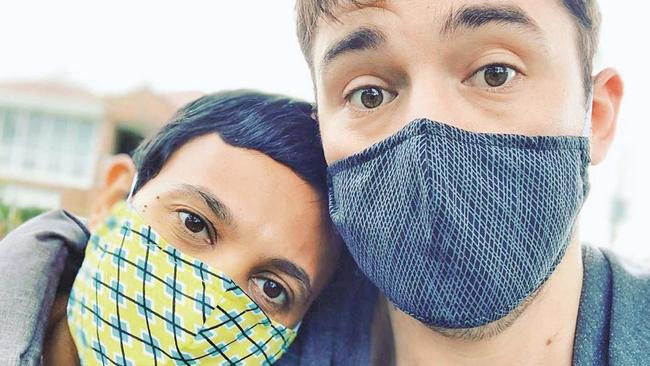
It’s been a tough year for many. What’s helped you get through it?
While I can’t speak for other industries, I can speak for mine – a lot of artists have had a really tough time. People forget that what got most people through lockdown was television, books, music...
It was always a wonderful point of conversation when I’d give people a call and check in on how they are. It would always begin with, “What are you watching?” or “What are you listening to?”
So what are you listening to?
I’ve become quite nostalgic. I’ve played a lot of ’90s R&B. If I had to pick a favourite, it would definitely be TLC’s Waterfalls. During this time, I’ve needed a bit of girl power. Something that lifts my spirits and says, “You’ve got this!”
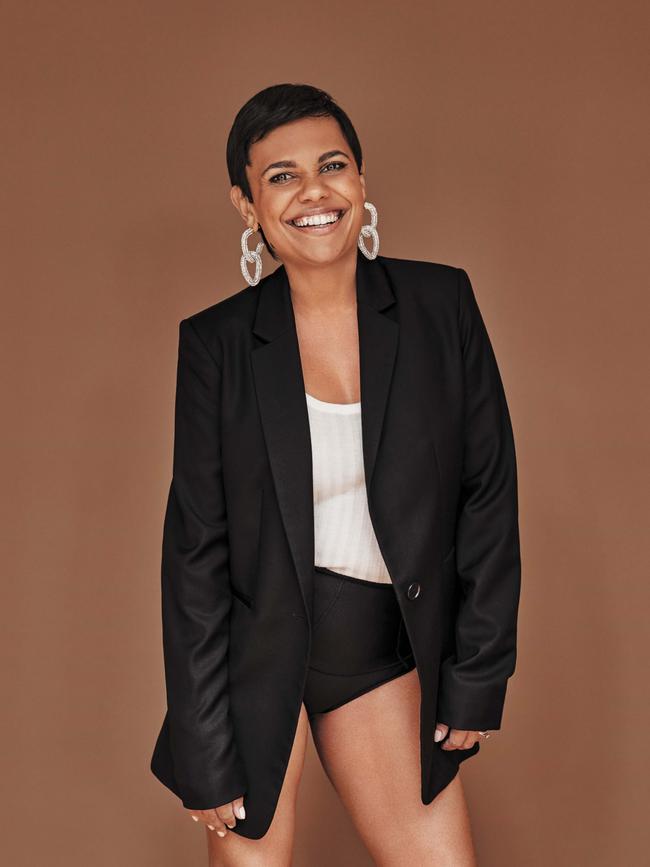
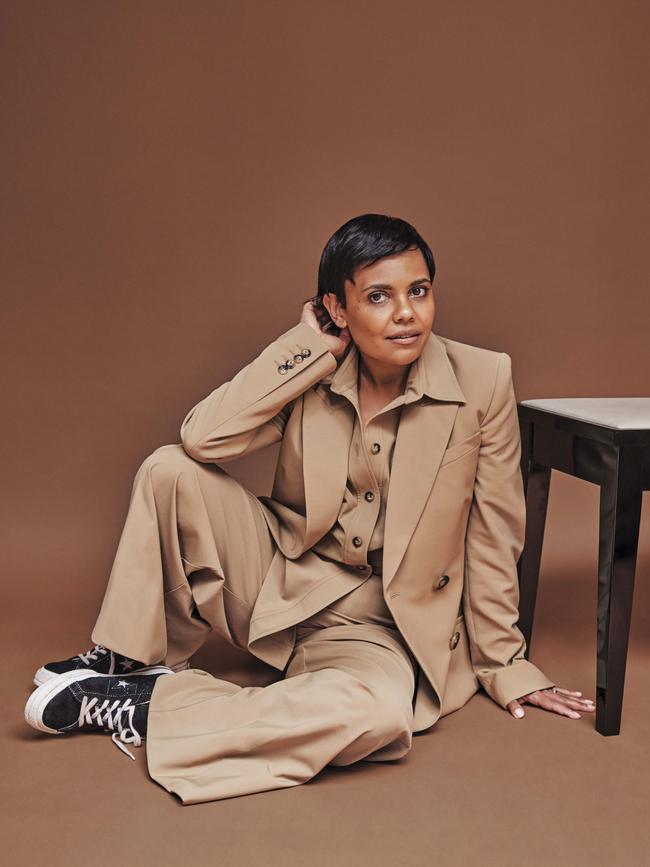
Looking at the work you’ve produced this year, you’ve definitely got this.
You’ve released your memoir ‘Top End Girl’ and children’s book ‘Aunty’s Wedding’, launched your podcast ‘Debutante’ with close friend Nakkiah Lui, done voiceovers for ‘Little J & Big Cuz’ on the ABC and featured in the highly anticipated Australian film ‘The Dry’ (which premieres in cinemas on January 1).
Phew, did we get all of that right?
[Laughs.] I was one of those workaholics who was putting all of these in place even before the pandemic hit. I also applied for the Bunya [a talent incubator in LA with Indigenous creatives, run in association with Netflix Australia and Screen Australia Indigenous Department; Tapsell and Lui won a place as a team and will travel to LA next year].
I’ve had days when I’ve felt like hitting my head against a brick wall. The public don’t see the amount of sleepless nights I’ve had, the amount of times I’ve cried because I didn’t have the confidence in myself or I was worried about how people would perceive the work.
You’ve just watched an advance screening of ‘The Dry’ [with Eric Bana in the lead role]. What’s it like seeing yourself on screen?
When I was younger, I was a lot more judgemental. I’d be like, “Oh gosh, did you really pull that face?” I’m my own worst critic.
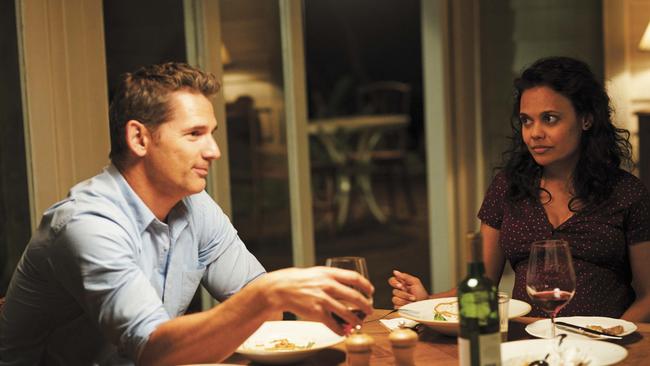
What was so beautiful about [director] Robert Connolly’s influence on the film was that nothing was ever wrong. He was just so happy to have people there, so that became an infectious attitude to have. I just looked forward to being there every day, especially when I got to work with such a talented actor as Eric Bana.
What I really admired about Eric’s process as an actor was that it was very clear to me that he had found his own equilibrium with work and life.
Your 2019 film ‘Top End Wedding’, which you co-wrote, produced and starred in, was a huge success. What feedback did you get about it?
The fact that it resonated with people who aren’t Aboriginal and Torres Strait Islander means a lot to me. It was lovely to see people be really proud of Australia and the land that’s now Australia, and to see how people appreciated how rich and full the Tiwi culture is.
That was the most important thing to me; we were able to celebrate Aboriginal culture in all its glory.
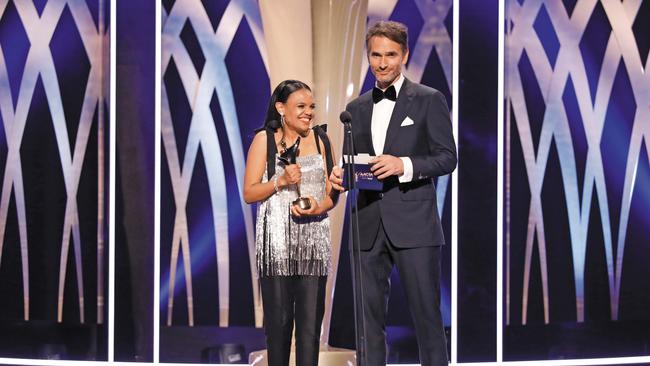
It’s been a year of global reckoning. The Black Lives Matter (BLM) movement in both the US and here in Australia has been a big part of that. What are your thoughts on BLM?
We’re living in a very interesting time. People have to make a decision on what side of history they want to be on. Do they want to care about other people? Or do they just want to look out for themselves?
It’s past the point of anyone asking people like me, “What should I do?” Read black academics, go and watch films made by Maori people... The reason why I like to do the things I do is because I don’t want to make Aboriginal people invisible anymore.
I think there’s some worth in my voice. I began to realise after Top End Wedding that people started to see the value in Aboriginal and Torres Strait Islanders. There have been people who have been Maori, Native American, and people like Rachel Perkins and Leah Purcell, these people and the people before them have worked so hard in making that voice so strong and so powerful and loud. I only want to be a part of that.
The way I’ve grown up, being Aboriginal isn’t a downer. It’s not a devastating thing to be Aboriginal. To belong to a culture that spans back over 60,000 years is an incredible honour and privilege. I’ve never been great at explaining that to people, but I’ve often been made to justify why I identify as Aboriginal, and why I’m proud of being it.
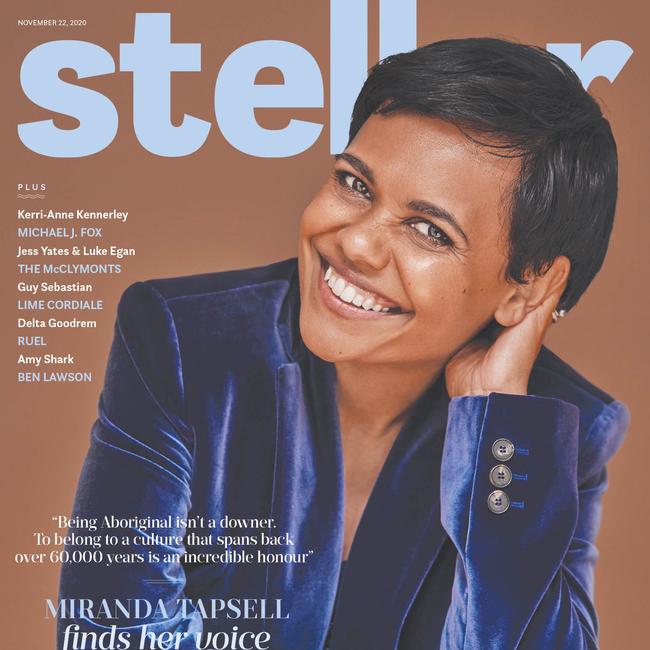
Writing has become a big part of your life. Was becoming a writer always a career choice for you?
When I first graduated from drama school, I attempted to write. I thought to myself, “Well I can’t wait for the phone to ring. I’ve got to start thinking about how I can do something and make a career.”
My career advisor in high school once said to me, “What’s your Plan B?” I had no Plan B! I was fortunate enough to get into the industry and I thought that I’d stay in it through writing. I just didn’t know what I wanted to write yet.
What people forget is that there’s no such thing as an overnight success. If you’re going to pursue the life of an artist, a big part of doing it is because you love it.
MORE STELLAR
Sarah Harris won’t be the poster girl for the ‘post-baby body’
Nick Kyrgios: ‘I was in a dark place, I felt used’
More Coverage
Originally published as Actor Miranda Tapsell opens up about why Aboriginal voices matter




